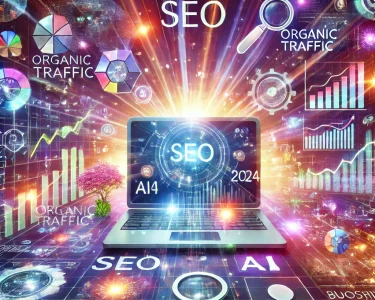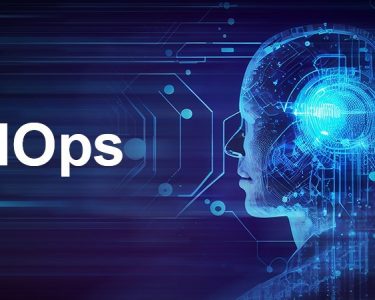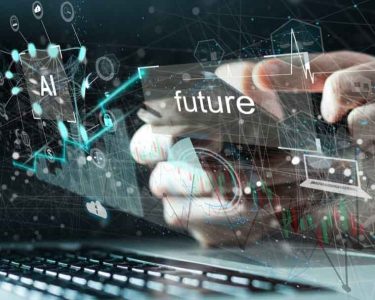The halls of Enterprise Connect 2024 buzzed with palpable energy. This year, the focus wasn’t on the latest collaboration tools or video conferencing upgrades. Instead, Artificial Intelligence (AI) reigned supreme. From keynote speeches to bustling expo booths, one message echoed through the conference: AI is no longer a futuristic fantasy; it’s here, and it’s poised to revolutionize the way we do business.

But how exactly will AI reshape the business landscape? Buckle up, because we’re diving deep into the transformative power of AI, exploring its impact on various facets of business operations, and equipping you with the knowledge to navigate this exciting new era.
The Rise of Large Language Models (LLMs): The Engine Powering the AI Revolution
Imagine an AI so sophisticated it can understand your natural language with uncanny accuracy, generate human-quality text, and learn from vast amounts of data. This isn’t science fiction; it’s the reality of Large Language Models (LLMs). These next-generation AI solutions are fundamentally changing the game.
Unlike their predecessors, LLMs boast significant advantages. They’re faster, more cost-effective, and possess an unparalleled ability to comprehend and generate human-like text. This opens doors to a plethora of innovative applications across industries. LLMs are the backbone of AI assistants, chatbots that can engage in natural conversations, and powerful content creation tools that can craft compelling marketing copy or even write basic code.
The implications are vast. Businesses can leverage LLMs to automate repetitive tasks like data entry and report generation, freeing up human employees for more strategic activities. Additionally, LLMs can analyze customer sentiment with unprecedented accuracy, allowing businesses to personalize customer experiences and build stronger relationships.
From Automation to Decision-Making: How AI Will Transform Key Business Functions
The impact of AI extends far beyond automating mundane tasks. Here’s a glimpse into how AI will reshape key business functions:
- Automation: Repetitive tasks are AI’s playground. From scheduling meetings, processing invoices, generating reports, and answering routine customer inquiries, AI can handle it all, freeing human employees to focus on higher-value activities that require creativity and critical thinking.
- Decision-Making: Data is the new oil, and AI is the refinery. By analyzing vast amounts of data, AI can generate insights and recommendations that would be impossible for humans alone. This empowers businesses to make data-driven decisions, optimize resource allocation, and forecast market trends with greater accuracy.
- Employee Productivity: AI isn’t here to replace employees; it’s here to augment them. AI-powered tools can personalize learning experiences, automate tedious tasks, and streamline workflows, allowing employees to work smarter and become more productive. Imagine a virtual assistant that anticipates your needs, schedules meetings based on your availability, and even drafts emails based on your preferences.
- Customer Experience: Customer expectations have never been higher. AI offers the tools to create a frictionless and personalized customer experience. Chatbots powered by LLMs can provide 24/7 customer support, while recommendation engines driven by AI can personalize product suggestions for each customer. Sentiment analysis tools can identify unhappy customers and allow businesses to proactively address their concerns.
These are just a few examples. The potential applications of AI in business are virtually limitless, spanning from marketing and sales to human resources and finance.
While AI promises a bright future, there are challenges to consider. Here are some key concerns and how businesses can navigate them responsibly:
- Job Displacement Concerns: As AI automates tasks, some jobs will undoubtedly become obsolete. However, this doesn’t necessarily translate to mass unemployment. Businesses can focus on reskilling and upskilling their workforce to adapt to the changing landscape. The focus will shift towards roles that require human skills like creativity, critical thinking, and emotional intelligence.
- Bias in AI Algorithms: AI algorithms are only as good as the data they’re trained on. Biased data can lead to biased AI outputs. Businesses need to be vigilant about data quality and ensure their AI solutions are fair and unbiased. Regular audits and diverse training datasets are crucial.
- Security and Data Privacy: AI thrives on data, but data security and privacy are paramount. Businesses must ensure robust security measures are in place to protect sensitive data and comply with relevant data privacy regulations. Implementing strong encryption protocols and transparent data usage policies is vital.
The Future of AI in Business: A Glimpse into a More Efficient and Productive World
The future of AI in business is brimming with exciting possibilities. Here are some emerging trends to keep an eye on:
- Explainable AI (XAI): As AI models become more complex, understanding their decision-making processes becomes critical. XAI focuses on making AI transparent, allowing humans to understand the reasoning behind AI outputs.
- Edge AI: Processing data closer to where it’s generated, rather than relying on centralized servers, is becoming increasingly important. Edge AI allows for faster response times and reduced reliance on cloud infrastructure. This will be particularly relevant for applications in areas with limited internet connectivity like remote manufacturing facilities or field service operations.
- Human-AI Collaboration: The future of work lies in collaboration, not competition, between humans and AI. Imagine a doctor using AI-powered diagnostic tools to make more accurate diagnoses or a lawyer leveraging AI to analyze legal documents at lightning speed. Humans will focus on tasks that require empathy, judgment, and creativity, while AI handles the heavy lifting of data analysis and automation.
These advancements paint a picture of a future where businesses operate with unprecedented efficiency and productivity. AI will free up human potential, allowing us to focus on innovation, problem-solving, and building strong relationships.
Final Word
Enterprise Connect 2024 made it abundantly clear: AI is no longer a “wait and see” technology. It’s here, and businesses that embrace it will gain a significant competitive advantage. By understanding the transformative power of AI, familiarizing yourself with the key considerations, and staying informed about emerging trends, you can ensure your business is well-positioned to thrive in the AI-powered future.




